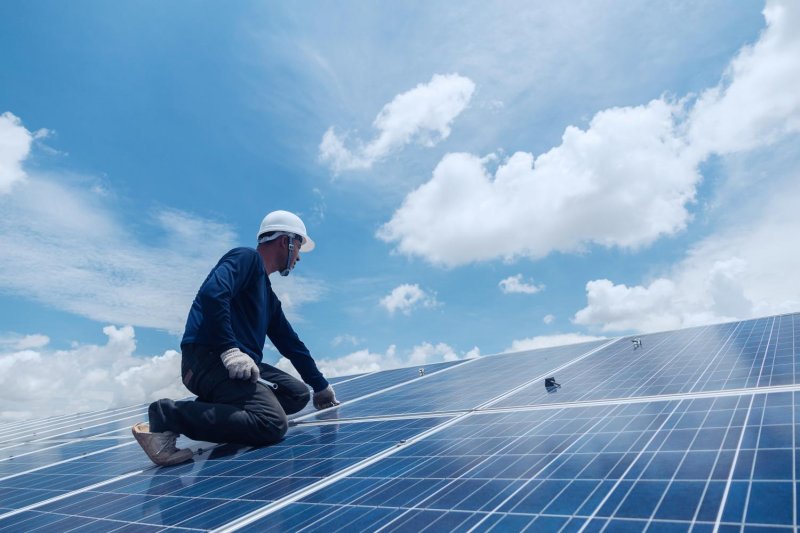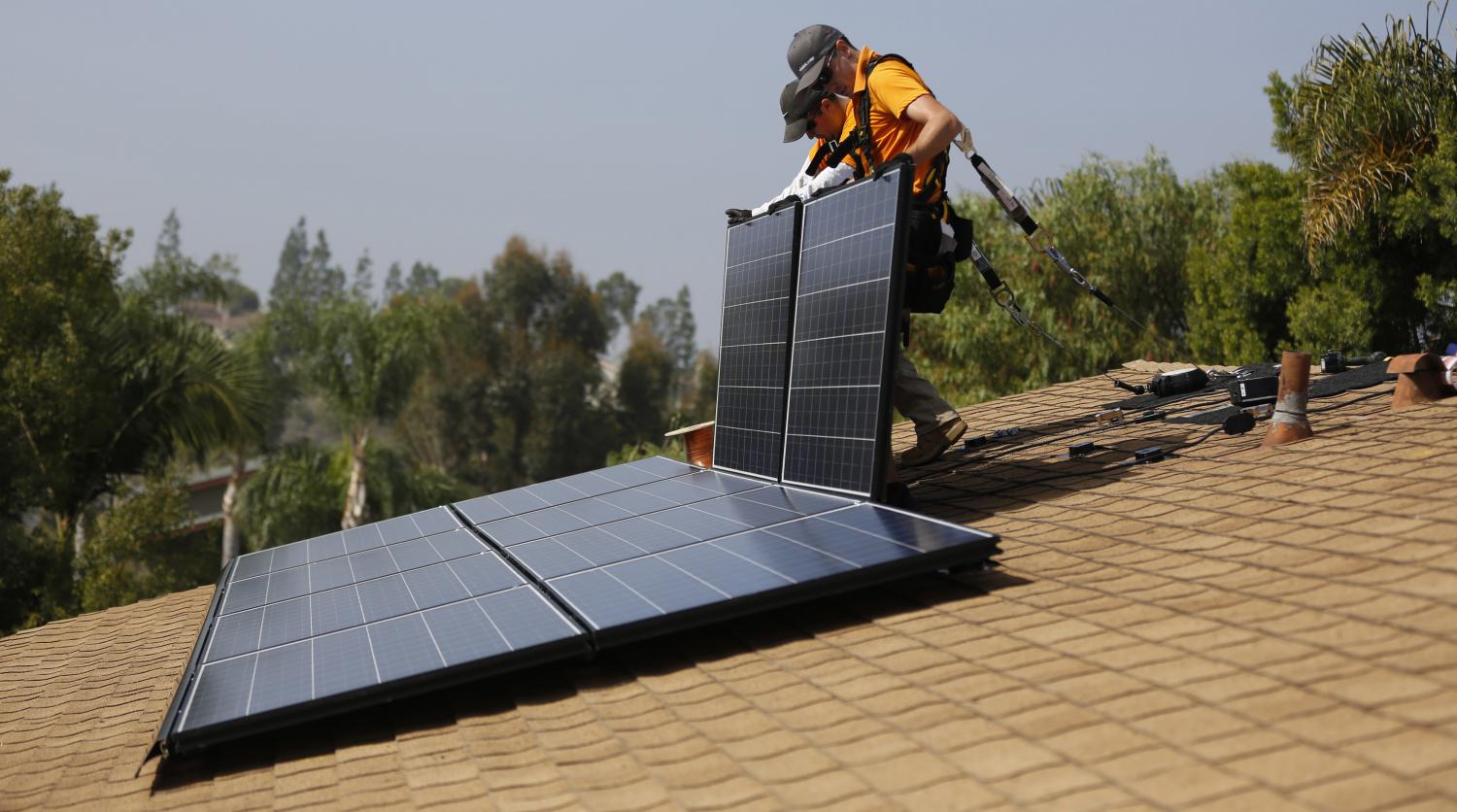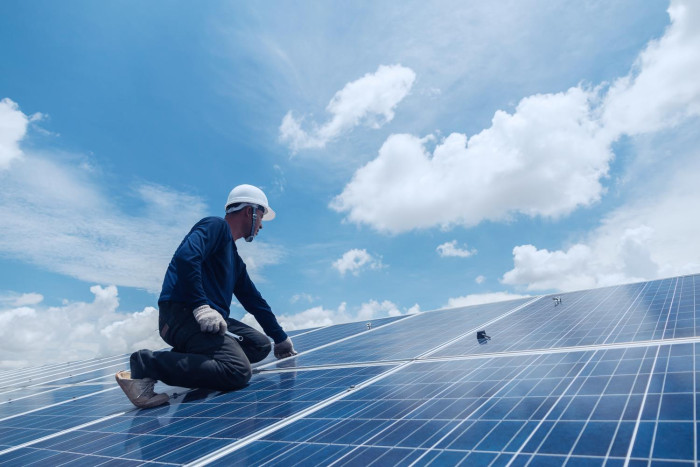Ministers prepare package of policies

An engineer replaces a solar panel on the roof of a solar power plant. The community solar cell project is one of three projects the government aims to push forward to completion by the end of this year.
The government intends to reduce power prices to ease the cost of living and introduce energy measures for the country’s targeted industries.
Speaking after an economic ministers’ meeting on Monday, Prime Minister Anutin Charnvirakul said the talks had considered power-related measures under the Energy Ministry’s “Quick Big Win” plan. The aim is to finalise guidelines and implement methods to lower the cost of living for citizens, generate income for local communities, and prepare energy readiness for targeted industries that plan to invest in Thailand.
Such energy measures will continue from the “Khon La Khrueng Plus” co-payment scheme launched last week as part of the government’s ongoing economic stimulus efforts, which have received significant public interest.
Meanwhile, Finance Minister Ekniti Nitithanprapas said he had discussed with the Board of Investment the idea of introducing measures to accelerate the establishment of factories in Thailand by foreign companies receiving investment incentives, emphasising that energy supply is a crucial factor in this process.
Government spokesman Siripong Angkasakulkiat said economic ministers would propose measures to help the public save on energy costs to the cabinet meeting scheduled for Oct 28.
The government expects to push forward three energy projects to completion by the end of this year. They are the community solar cell project, the solar cell project for farmers, and the electricity purchase project from citizens’ solar cells.

Mr Siripong said the community solar cell project would help reduce electricity costs for participating citizens to 3.10 baht a unit, down from the current 4.90 baht a unit.
On the economic stimulus project set to be considered by the cabinet on Tuesday, Mr Siripong said it would be a tourism stimulus project for secondary citites. The main principle of this project is that individuals would be allowed to claim tax deductions for their travel expenses, while hotel operators would also be able to deduct renovation expenses for their hotels from their taxable income.
As for the measures to reduce the cost of living for the public in the energy sector, previous governments implemented several initiatives, such as capping the diesel price at no more than 30 baht a litre through the use of excise tax mechanisms and the Fuel Oil Fund, fixing the price of liquefied petroleum gas at 423 baht per 15-kilogramme cylinder, and reducing the electricity tariff rate per unit.
The energy measures of Mr Anutin’s administration that have already been announced include the community solar cell installation project, among others.
Earlier, Mr Ekniti said the core of this government’s economic policy is to revive the economy quickly — to be Quick, Big and Win — or in other words, “short-term recovery with long-term goals”. The aim is to enhance the capabilities of the Thai people, increase their income-generating potential, and ensure balanced economic development across the country. This forms the main framework of Mr Anutin’s economic policy that has been assigned for implementation.


